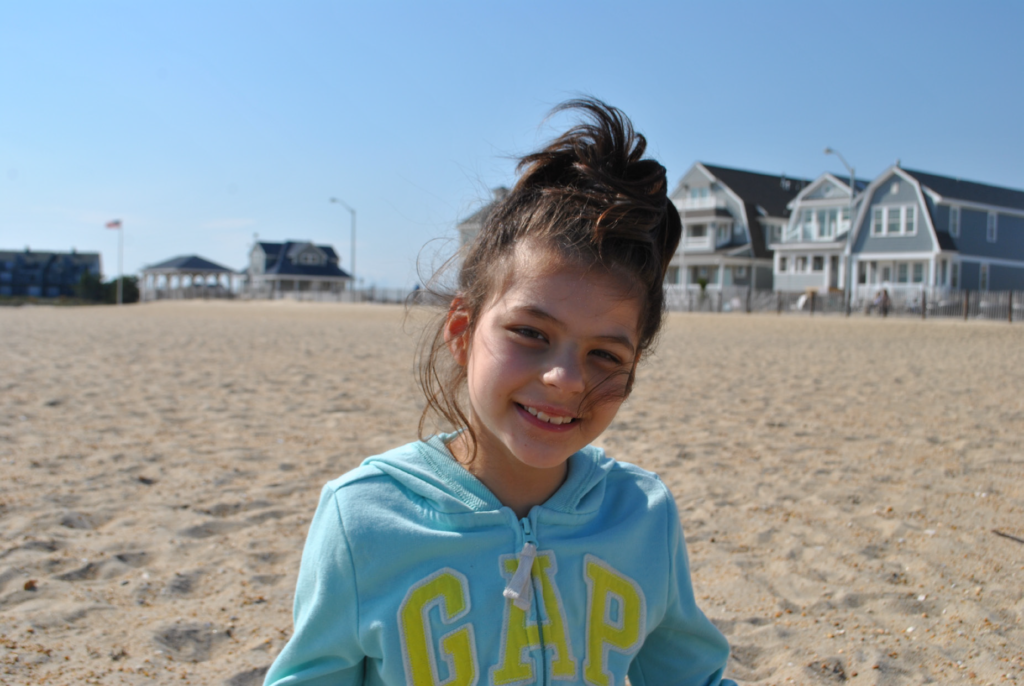
Olivia is an 8 year old, fun-loving and happy little girl residing in central New Jersey with her mom Taryn, dad Brian, almost 4 year old brother James, one year old sister Violet and family dog Annie. At 24 weeks in utero, Olivia’s parents sat in front of a genetics doctor attempting to make sense of the information that would change their lives forever – the sweet little baby expected to be born in February 2006, was diagnosed with Ring 22 Chromosome Disorder. Fast forward to three years later, the size of her chromosome deletion was detected through Chromosome SNP Microarray and Olivia was diagnosed with Phelan-McDermid Syndrome and in August 2011, Autism Spectrum Disorder.
Probably one of the most diffcult challenges in raising Olivia is the fact that she is completely non-verbal – no words, no sound approximations, no forms of sign language, just a range of sounds. Funny thing is that Olivia had 5 words at 12 months of age, lost them 3 months later and they have yet to return. Because of this impairment, Olivia uses a picture system to communicate and is currently learning a voice output application for use with her iPad.
In addition to her language impairment, Olivia has a degree of cognitive impairment, poor fne motor skills, weakened hand strength, decreased motor coordination, sensory processing disorder, decreased ability to regulate body temperature, a high threshold for pain, consistent teeth grinding, increased irritable behaviors, sleep disruptions, acid refux, chronic constipation, no understanding of general safety (i.e., traffc, strangers, etc.) and was recently diagnosed with growth hormone defciency. As you can imagine, these challenges present ongoing concerns for us – for instance, due to a lack of temperature regulation, we need to ensure that in extreme temperatures Olivia is cared for with caution; or if she falls on the playground, she needs to be thoroughly checked by the school nurse to ensure nothing has been broken or a concussion isn’t present (because she won’t feel it).
Since age 3, Olivia attends a special services full-day school program for 11 months throughout the year. In addition to her education (which includes occupational therapy, speech therapy and physical therapy), she also receives additional private occupational therapy. Through a collaborative approach, Olivia utilizes a wide variety of fun activities to help develop better body awareness, core strength, fne motor skills as well as communication development.
Olivia is a sensory seeker and enjoys a wide variety of physical activities including jumping on her trampoline, swinging, and running around on the playground. Her most favorite pastimes include: therapeutic horseback riding, swimming, gymnastics, bike riding, watching videos, eating, and playing with her siblings.
As Olivia gets older, the harder certain areas of life become. Having a child that has been robbed of the ability to toilet train (we have been diligently working on this since age 3) is physically, mentally and emotionally exhausting. Socializing and engaging with typical 8 year olds can be just as tiring – watching them play, interact with each other, interact with adults, verbally communicate, perform independent self help skills, to then glance over at our child whose learning gap has become much larger, hurts our hearts. Not because we are selfsh as her parents, but because we are selfsh for her – we want that life for her and we feel that deep down inside, she wants that life for herself. So please, we ask, we beg that the research community come forward and invest the time and resources in studying individuals with PMS to give them a better quality of life, to allow them to make their own choices as adults, to take away the pain and debilitating effects they experience with medical complications, to give them the voice they so very much deserve!
One day, we will no longer be on this earth to care for our little girl. Ideally, we hope to instill in our other children the value of family and caring for one another in hopes that they will be here for Olivia and ensure that she receives the best care possible. We don’t know what that future holds for us, so if more immediate research is done and drug therapies become available for Olivia and other individuals like her, maybe we won’t have to worry, maybe someday she will lead a life just like her siblings.
